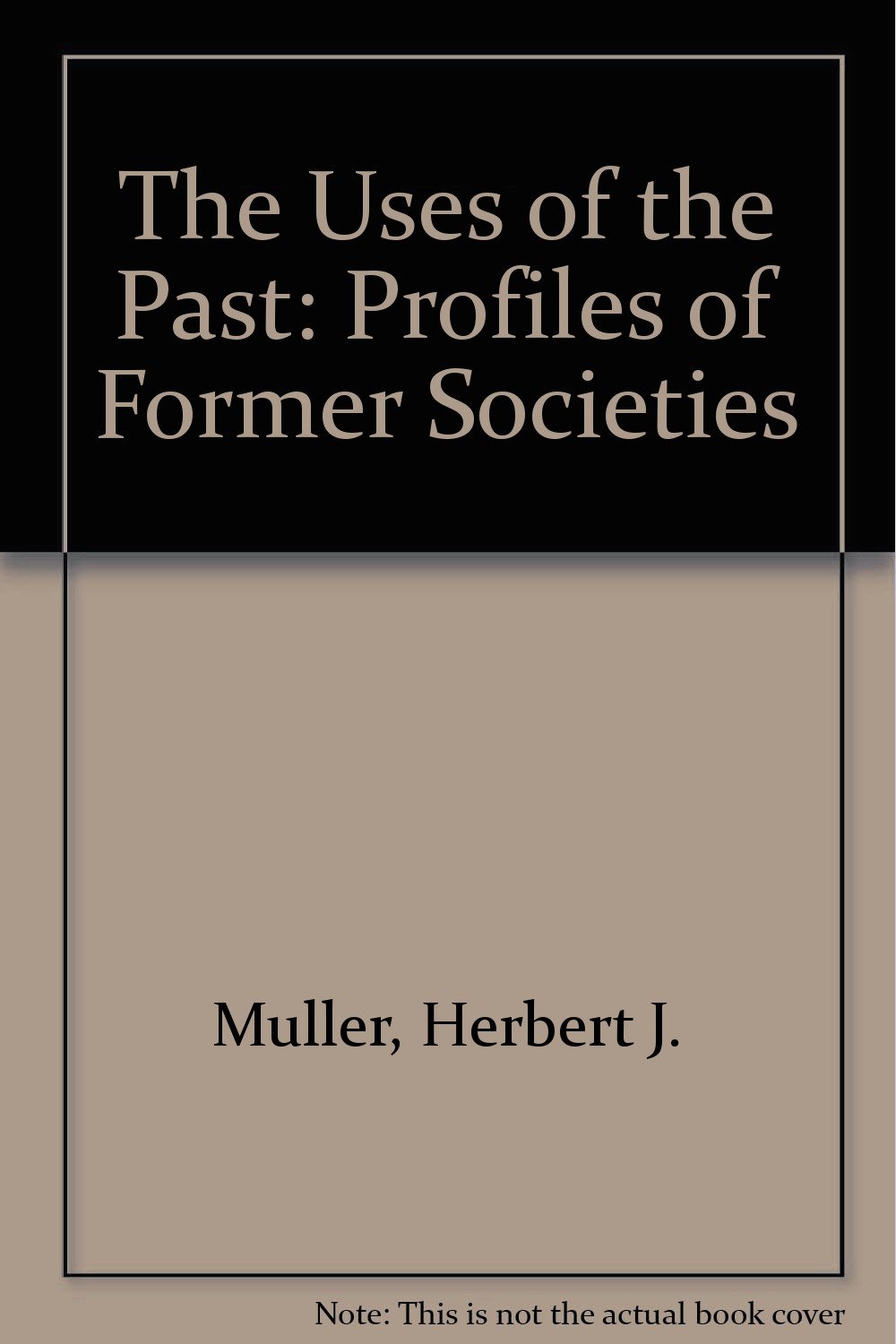

 |

|

The average rating for The uses of the past based on 2 reviews is 5 stars.
Review # 1 was written on 2016-02-13 00:00:00 Curt Wilcox Curt WilcoxThe author was a professor of history at Cornell, Purdue and Indiana universities. His book examines the formation of Western (European and American) civilization and its predicament at the beginning of the Cold War with the threat of nuclear global destruction. Does civilization have any value if it ends in the annihilation of humanity? The first three chapters are a prelude to a tour through the development of the Judaeo-Christian religions, the influence of ancient Greece and Rome, the rise of European civilization, the rise of communism in Russia and the cultures of India and China. The Hagia Sophia is used as a backdrop for his ruminations in the first chapter as the meeting place of Middle-Eastern and Western civilizations. The second chapter is philosophy of history where he argues that human history is not simple. The third chapter considers the value of civilization is the abstract. Karl Popper is quoted as saying 'the best society is that which produces free, responsible individuals with a mind of their own'. He presents his reservations about the Christian religion and reveals his preference for humanism throughout the book. When comparing civilizations, he uses the welfare of the common man as the measure. Hellenic and medieval civilizations subjected the majority of humanity to hard work, ignorance, fear and poverty. So did the Russian, Indian and Chinese civilizations. Dr Muller asks if they should be judged by the kind of man they produced. But it would not be fair to consider only the elite. He insists that we must consider the average, common man. Dr Muller is very well read (includes a bibliography by chapters) and will not accept easy answers. He perceives humans and their history as very complex, making analysis and characterization difficult. The impetus for this work was a reaction to Arnold Toynbee's A Study Of History. I am grateful for Muller's honesty, humility and conservatism. In our current world of globalization, respect and tolerance for different civilizations seem to be wise virtues for Westerners. Are we going to insist that the entire world adhere to our values? Can we somehow resolve the threat of global nuclear war? This is a thoughtful work that invites re-reading and much reflection. |
Review # 2 was written on 2008-01-15 00:00:00 Joseph Skaff Joseph SkaffFound this in the dollar bin at the Strand -- I allways wind up bying a huge stack when I get waylaid there, but this might have been the best of the bunch. Herbert's able to sum up pithily and profoundly the differences civilization and history can have on the soul -- by extrapolation, & reading into the blanks, the intrepid reader can come closer to qualifying what it is that civilzation and history do not change about us, what people like to call human nature. Theres a terrific chapter here on the historical Jesus, which puts a lot of the weirdness of the New Testament into perspective -- you have to remember that the early christians were manically apocoplyptic; naturally they'd swear of sex, marriage, or anything that might possibly be sinful when they thought the end of the world was waiting just beyond the horizon. Also a good few chapters on the classical world that put to bed of a few misconceptions I had about the time; for instance: Greek students did NOT gratify their teacher's with anal sex as popular rumor has it -- no, the sex, as it turns out, was completely femoral (!!!) |
CAN'T FIND WHAT YOU'RE LOOKING FOR? CLICK HERE!!!